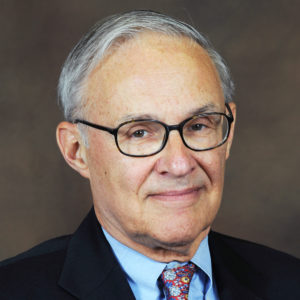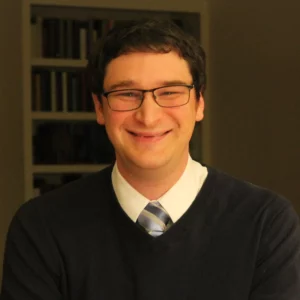Constitutional Studies Program
Study key constitutional questions and controversies with leading legal experts & practitioners.
July 7–11, 2025
Washington, DC
In the fourth week of Political Studies, fellows will consider the liberal tradition and its expression in America.
The first section will explore the question of American national character through a close reading of Alexis de Tocqueville’s Democracy in America. The second section will delve into the American essence through reflection on Abraham Lincoln’s speeches and writings.
Diana Schaub on Lincon's Gettysburg Address
This course is part of our residential Political Studies Program. Fellows participate in morning seminars and meet prominent men and women in public life over afternoon and evening sessions. Up to 32 fellows will be selected.

Daniel Burns is Associate Professor of Politics at the University of Dallas. His research in political philosophy focuses on the relation between religion and citizenship. He has recently served as a staffer for the U.S. Congress Joint Economic Committee and as a full-time contractor for the U.S. Department of Health and Human Services.

Daniel Burns is Associate Professor of Politics at the University of Dallas. He has held fellowships at the Catholic University of America and the University of Texas at Austin. He was on academic leave for government service between January and June of 2020, where he advised the U.S. Department of Health and Human Services.
His research in political philosophy focuses on the relation between religion and citizenship. He is currently working on a book called Against Secularism: Religious Identity and Liberal Democracy. He has also written on Al-Farabi, Thomas More, John Locke, Sayyid Qutb, the Strauss-Kojève debate, Joseph Ratzinger, Samuel Huntington, American foreign policy, and the modern Catholic church. He is a member of the Neuer Schülerkreis Joseph Ratzinger/Benedikt XVI., a Germany-based group of scholars dedicated to advancing Ratzinger’s intellectual legacy.
He holds a B.A. in Political Science from Williams College and a Ph.D. in Political Science from Boston College.

Diana Schaub is a nonresident senior fellow at the American Enterprise Institute (AEI), where her work is focused on American political thought and history, particularly Abraham Lincoln, Frederick Douglass, African American political thought, Montesquieu, and the relevance of core American ideals to contemporary challenges and debates. Concurrently, she is Professor Emerita of Political Science at Loyola University Maryland, where she taught for almost three decades.

Diana Schaub is a nonresident senior fellow at the American Enterprise Institute (AEI), where her work is focused on American political thought and history, particularly Abraham Lincoln, Frederick Douglass, African American political thought, Montesquieu, and the relevance of core American ideals to contemporary challenges and debates. Concurrently, she is Professor Emerita of Political Science at Loyola University Maryland, where she taught for almost three decades.
An expert in political philosophy, Dr. Schaub has lectured on a variety of topics and participated in conferences around the country. She has contributed chapters to multiple books on Shakespeare, liberal education, women, and religion, and she is the author of three books: His Greatest Speeches: How Lincoln Moved the Nation (St. Martin’s Press, 2021); What So Proudly We Hail: The American Soul in Story, Speech, and Song, coedited with Amy and Leon Kass (ISI Books, 2011); and Erotic Liberalism: Women and Revolution in Montesquieu’s “Persian Letters” (Rowman & Littlefield, 1995). Her monograph Emancipating the Mind: Lincoln, the Founders, and Scientific Progress (AEI, 2018) is based on her remarks at the 2018 Walter Berns Constitution Day Lecture.
Dr. Schaub has also been published in the popular press, including in the Baltimore Sun, the Claremont Review of Books, Commentary, and the Wall Street Journal.
Dr. Schaub has a PhD and an MA in political science from the University of Chicago. Her BA in political science is from Kenyon College.
Readings:
Discussion Questions:
Readings:
Discussion Questions:
Readings:
Discussion Questions:
Readings:
Discussion Questions:
Readings:
Discussion Questions:
Readings:
Discussion Questions:
Readings:
Discussion Questions:
Readings:
Discussion Questions:
Readings:
Discussion Questions:
Readings:
Discussion Questions:
Judge Roy Altman
Judge Roy K. Altman, at 36, became the youngest federal district court judge in the country—and the youngest federal judge ever appointed in the Southern District of Florida. He received his BA from Columbia University and his JD from Yale Law School, where he was projects editor of the Yale Law Journal. After law school, Altman clerked on the 11th Circuit Court of Appeals for the Honorable Stanley Marcus.

Diana Schaub
Diana Schaub is a nonresident senior fellow at the American Enterprise Institute (AEI), where her work is focused on American political thought and history, particularly Abraham Lincoln, Frederick Douglass, African American political thought, Montesquieu, and the relevance of core American ideals to contemporary challenges and debates. Concurrently, she is Professor Emerita of Political Science at Loyola University Maryland, where she taught for almost three decades.

Rita Koganzon
She is an associate professor at the School of Civil Life and Leadership at UNC-Chapel Hill. Her research focuses on the themes of education, childhood, authority, and the family in historical and contemporary political thought. In addition to her research, she contributes book reviews and essays to the Hedgehog Review, National Affairs, The Point, and The Chronicle of Higher Education, among others.

Martha Bayles
Martha Bayles is a fellow at the Institute for Advanced Studies in Culture at the University of Virginia, and since 2003 she has taught humanities at Boston College. She is currently at work on a monograph on the threats to independent journalism around the world; and a book about the importance of “voluntary restraint” in the American tradition of free speech.

Amy A. Kass
Amy Apfel Kass (1940 – 2015) was a senior fellow at the Hudson Institute, Senior Lecturer Emerita in the humanities at the University of Chicago, and coeditor of What So Proudly We Hail: The American Soul in Story, Speech, and Song. She was an award-winning teacher of classic texts.

Leon R. Kass
Leon R. Kass, M.D., is the Madden-Jewett Scholar at the American Enterprise Institute and Harding Professor Emeritus in the Committee on Social Thought at the University of Chicago. From 2001 to 2005, he was chairman of the President’s Council on Bioethics.

Daniel Burns
Daniel Burns is Associate Professor of Politics at the University of Dallas. His research in political philosophy focuses on the relation between religion and citizenship. He has recently served as a staffer for the U.S. Congress Joint Economic Committee and as a full-time contractor for the U.S. Department of Health and Human Services.

Patrick T. Brown
Patrick T. Brown is a fellow at the Ethics and Public Policy Center, where his work focuses on developing a robust pro-family economic agenda and supporting families as the cornerstone of a healthy and flourishing society. Prior to joining EPPC, Patrick served as a Senior Policy Advisor to Congress’ Joint Economic Committee (JEC).